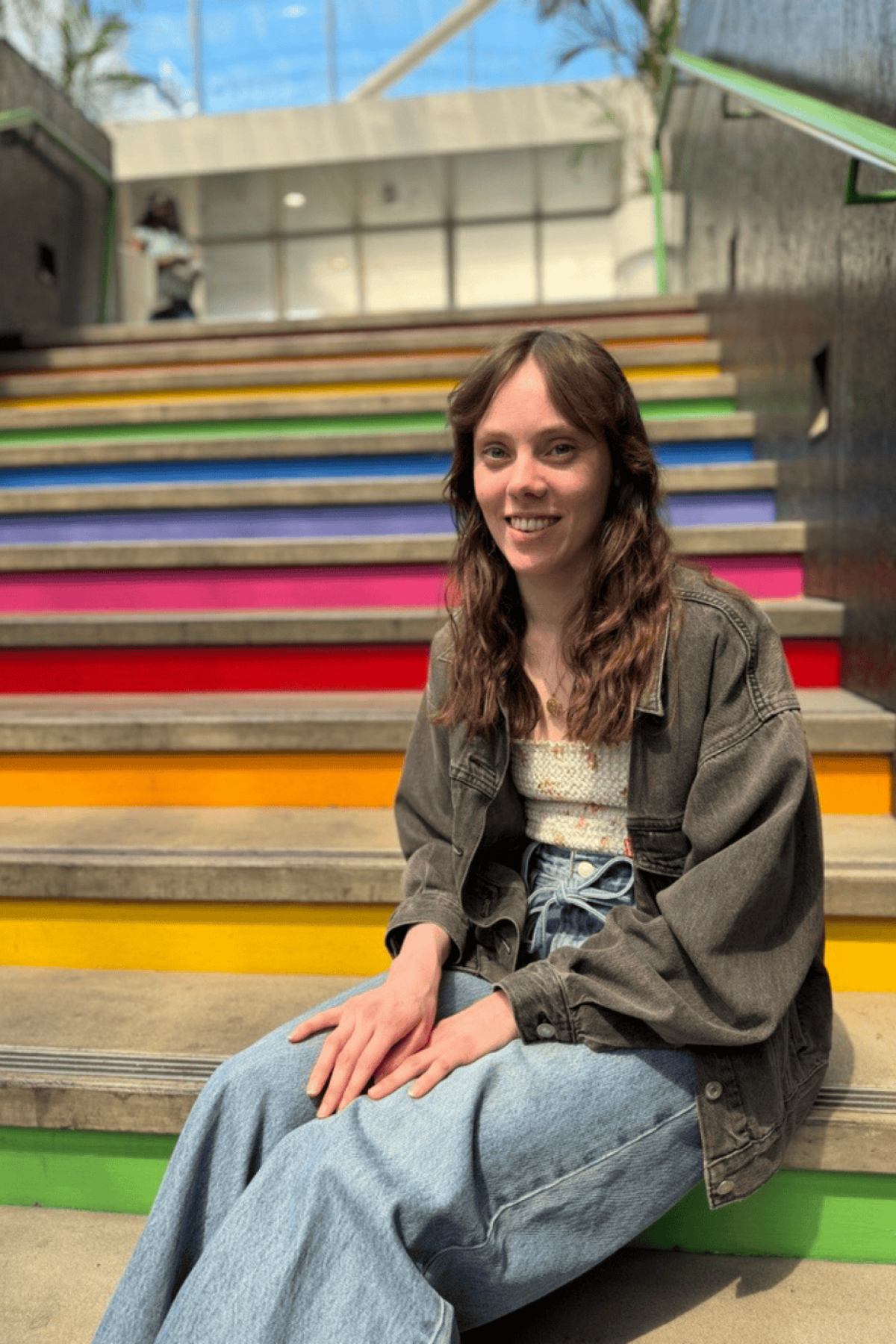Making your mark in Honours with recent graduate Shannon
Hi, I’m Shannon and earlier this year I graduated with Honours in the Bachelor of Media.
I started studying almost 10 years ago. In 2015, I did my Bachelor of Music, and I took four years to do that because it’s really hard. In my third year I went part time, which was 75% of the workload — it was great! I recommend reducing your study load if four subjects is too much. Maybe your degree will end up taking a little longer, but it’s a much kinder way through uni.
Back then, I had a feeling that I probably would end up studying something else, but I wanted to see it through, and it led me to a lot of different opportunities. Music has been a bit of a backup career that I can take around the world and apart from the language barrier, you can teach music everywhere.
I started a media degree in 2021 and the experience of going back to study as an adult was so different because I felt more switched on within the world, with more life experience to help me navigate what I might enjoy as a career path. In general, at university this time around I was more engaged and felt more capable which sparked my interest in postgraduate study.
My honours project enabled me to explore more of the theory side of my degree at an advanced level, which I loved, and I knew I was in the right phase of my life to make the choice to really focus on studying as I wasn’t already committed to a career.

Shannon honed her study and life skills during undergrad to achieve Honours.
An Honours project isn’t just an academic exercise; it’s an opportunity to carve out a niche and make a contribution to the field. Shannon
Lean into your study strengths
After many years at university, one of the great things is knowing how I like to study. I think you can really maximise that opportunity and turn it into a strength that you can lean on. During honours, I learnt how to write methods, findings and structure a project of that size, all of which I hadn’t done before. But the fundamentals of writing and research I was well practised at.
In the middle of the year, during honours I made a timeline of when everything was going to happen. This was part of the honours project but having honed my organisational skills over the years between work and study made it easier to plan.
I remember hearing that when your motivation isn’t there to get things done, that’s when you fall back on discipline. For me that looks like having set times and places for study on campus from 9 am to 5 pm on specific weekdays. Not every day is equally as successful in terms of word count or progress, so when motivation falls away, I’ve already practised the discipline and so I’ll sit down and do the work. I can appreciate though that approach might not work for everyone.
Developing and demonstrating knowledge in your area of specialty
Media has always fascinated me because, at its core, it’s about power—who controls it, how it’s distributed, and the messages that influence public perception. I’m particularly interested in the intersection of media with politics, social issues, and culture. Given my journalism major and career aspirations in the news industry, I knew that skewing my Honours thesis around news media would be a strategic choice. An Honours project isn’t just an academic exercise; it’s an opportunity to carve out a niche and make a contribution to the field.
My thesis ultimately focused on local government—an ultimate source of power—and how its influence is exerted through local news media. This was especially relevant given the challenges facing Australia’s news environment, including media concentration and the decline of regional news outlets. These issues tie directly back to questions of power: who owns the media, who gets to tell the stories, and whose voices are heard? At the same time, I wanted to ensure my research had a clear focus. So, I narrowed my study to regional news media. I also wanted my research to contribute something new to the field.
It’s people who make the difference
One of the fortunate things about doing Honours getting assigned a supervisor who is there to support you and guide you through that space. I had a really good relationship with my supervisor who I've known for a few years throughout my undergrad. I never felt like I didn't have someone to answer my questions, so you know, whenever I needed something I could email her, or catch up at the next meeting.
I was lucky because I was working in different places and had various groups of people around me — not just those connected to university, but others who supported different parts of my life. Life is never just about studying; it’s a holistic experience. If you approach your studies as a lifestyle, balancing study becomes much more manageable.
Shannon completed her honours in December 2024 and is now working as a journalist in regional SA.
